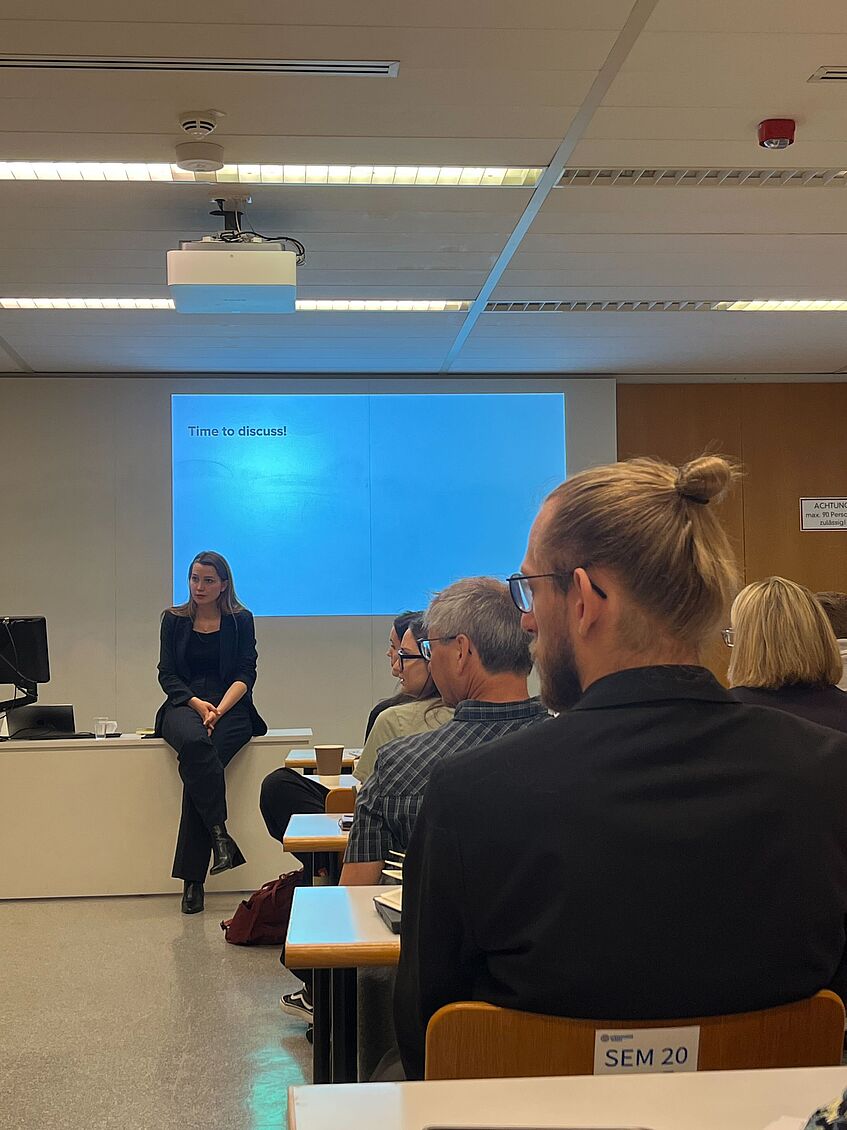TeamID Breakfast Lecture on "Governing Frontier AI: Status Check, Technical Hurdles & Next Frontiers" with Lisa Soder

TeamID Breakfast Lecture on "Governing Frontier AI: Status Check, Technical Hurdles & Next Frontiers" with Lisa Soder
by Irina Georgieva
The Department of Innovation and Digitalisation in Law launched its TeamID Breakfast Lecture Series of 2025 on 29 April 2025. The aim of the Breakfast Lecture Series is to increase the exchange between the Department, academic staff and broader audience including law students with researchers both from our faculty as well as from other disciplines in a convivial setting.
Our first guest lecturer of the year was Ms. Lisa Soder, a Senior AI Policy Researcher at Interface, a leading European tech policy think tank, and incoming Visiting Research Fellow at the Stanford Intelligent Systems Laboratory. In her talk, Ms. Soder offered an insightful overview of the evolving governance landscape for general-purpose AI (GPAI), reflecting on key technical and legal developments 2.5 years after the public release of OpenAI’s ChatGPT.
Ms. Soder began with a clear and accessible explanation of GPAI, which refers to an AI system trained on vast datasets and capable of performing a wide range of tasks across different domains (unlike narrow AI systems, GPAI models can serve as the foundation for many downstream applications). She highlighted how these models have advanced rapidly since 2019, now exhibiting capabilities that approach human-level performance in some areas, and how, mostly due to the high costs associated with training such models, the GPAI landscape is currently dominated by a small number of companies, primarily based in the United States.
A particularly valuable aspect of the lecture was Ms. Soder’s analysis of how GPAI models are addressed in the EU’s landmark AI legislation, the EU AI Act. She outlined the key provisions applying to GPAI and explained their legal and technical implications in an accessible manner. Her presentation raised the important question of whether current governance frameworks, including the AI Act, can keep pace with the rapid development of frontier AI systems. This question is especially relevant given the potential risks posed by GPAI, such as large-scale discrimination, cyber security threats, and biological threats.
Ms. Soder also raised the question of whether the EU AI Act is truly “future-proof” in its approach to GPAI, especially with the GPAI-specific rules set to apply from 2 August 2025. She also highlighted key current challenges regarding the EU AI Act’s “future-proof” rules for GPAI, such as the difficulty to precisely define which models are in scope of the law’s GPAI provisions, or yet the difficulty of defining the legal principle of “systemic risks”. Ms Soder’s informed perspective was immensely valuable in communicating the strengths, but also potential weaknesses of the EU AI Act regarding GPAI.
Our guest lecturer translated dense policy and technical topics into accessible principles, allowing the attendees, whether tech-savy or not, to follow and partake in this interesting and important discussion. A highlight of this lecture was its participative aspect, with a 25-minute engaging discussion with the participants. This allowed for interesting debates and the sharing of different perspectives, as the participants had a wide array of backgrounds.
The next edition of the TeamID Lecture Series also promises to be exciting and intriguing and will once again provide a platform for exchange on current and relevant topics in a comfortable setting among the researchers and students of the University of Vienna.
Please stay tuned for more information on the events planned for 2025!
